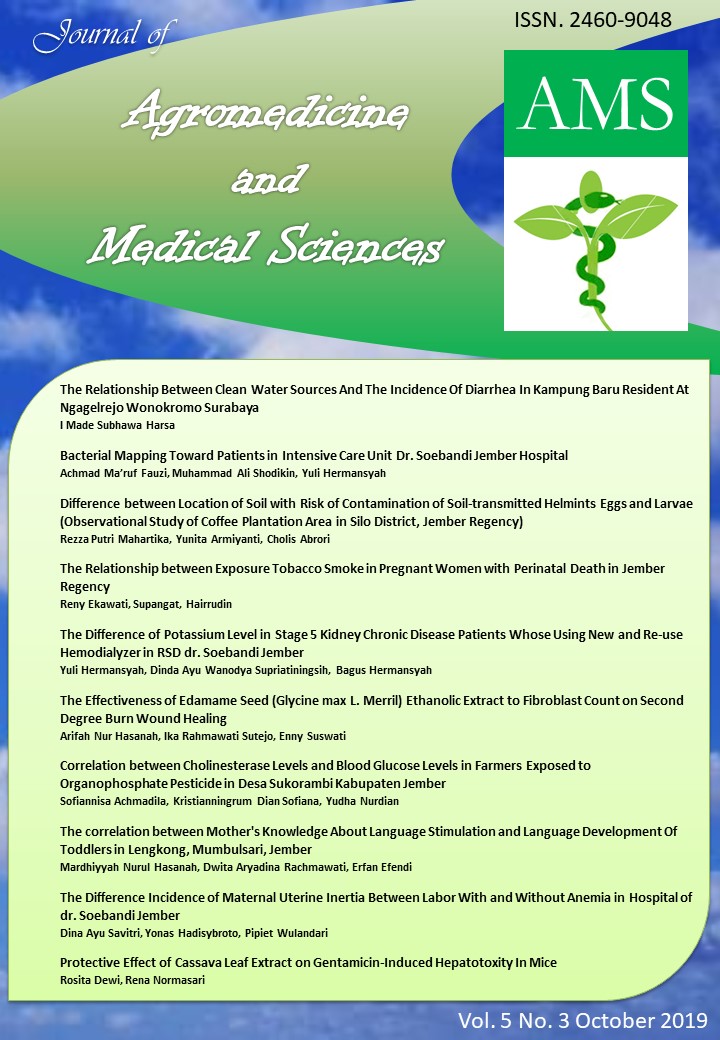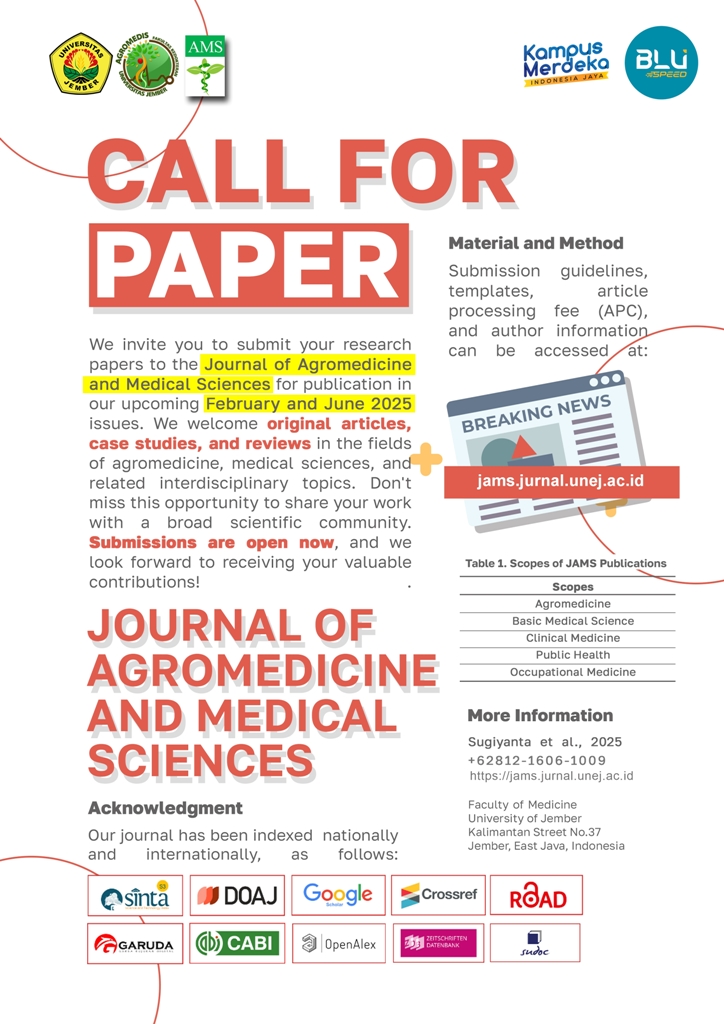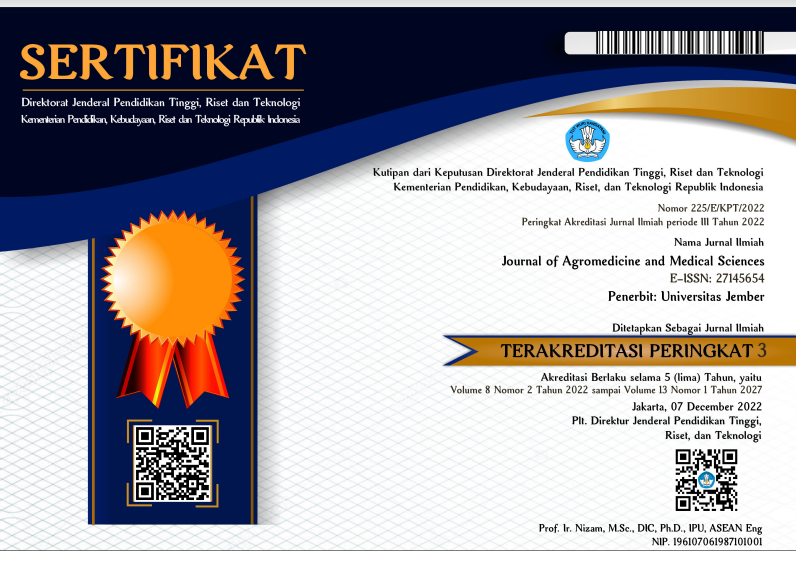Protective Effect of Cassava Leaf Extract on Gentamicin-Induced Hepatotoxity In Mice
DOI:
https://doi.org/10.19184/ams.v5i3.13815Abstract
Abstract
Gentamicin usage can cause the damage of liver structure and function. The basic mechanism inducing liver damage from gentamicin is lipid peroxidation in cell membrane and the suppresion of antioxidant defence system in liver. Antioxidant in cassava leaf such as vitamin C, carotene, flavonoid, dan mineral can protect liver from drug toxicity effect. This research aimed to determine hepatoprotective effect of cassava leaf through microscopic observation of liver histopathology slide of mice induced by gentamicin. The research design was post test only control group design. Mice were divided into five groups, normal group, positive control (gentamicin 80 mg/kg b.w.); P1, P2, and P3 (gentamicin 80 mg/kg b.w. and cassava leaf extract 150 mg/kg b.w., 300 mg/kg b.w., 450 mg/kg b.w. respectively, for 14 days). The average score of liver cell damage was determined by microscopic observation of 200 liver cells undergoing parenchymal degeneration, hidrophic degeneration, and necrosis. One Way Anova analysis showed significant difference among the groups (p<0,05) and Post Hoc Tukey HSD test showed that cassava leaf extract at the dose level of 450 mg/kg b.w. resulted significant liver cell characteristic improvement in liver histophatology slide (p<0,05) compared to positive control group. It could be concluded that cassava leaf extract had protective effect on gentamicin-induced hepatotoxicity in mice.
Keywords: cassava leaf extract, hepatotoxicity, gentamicin, liver histopathology























